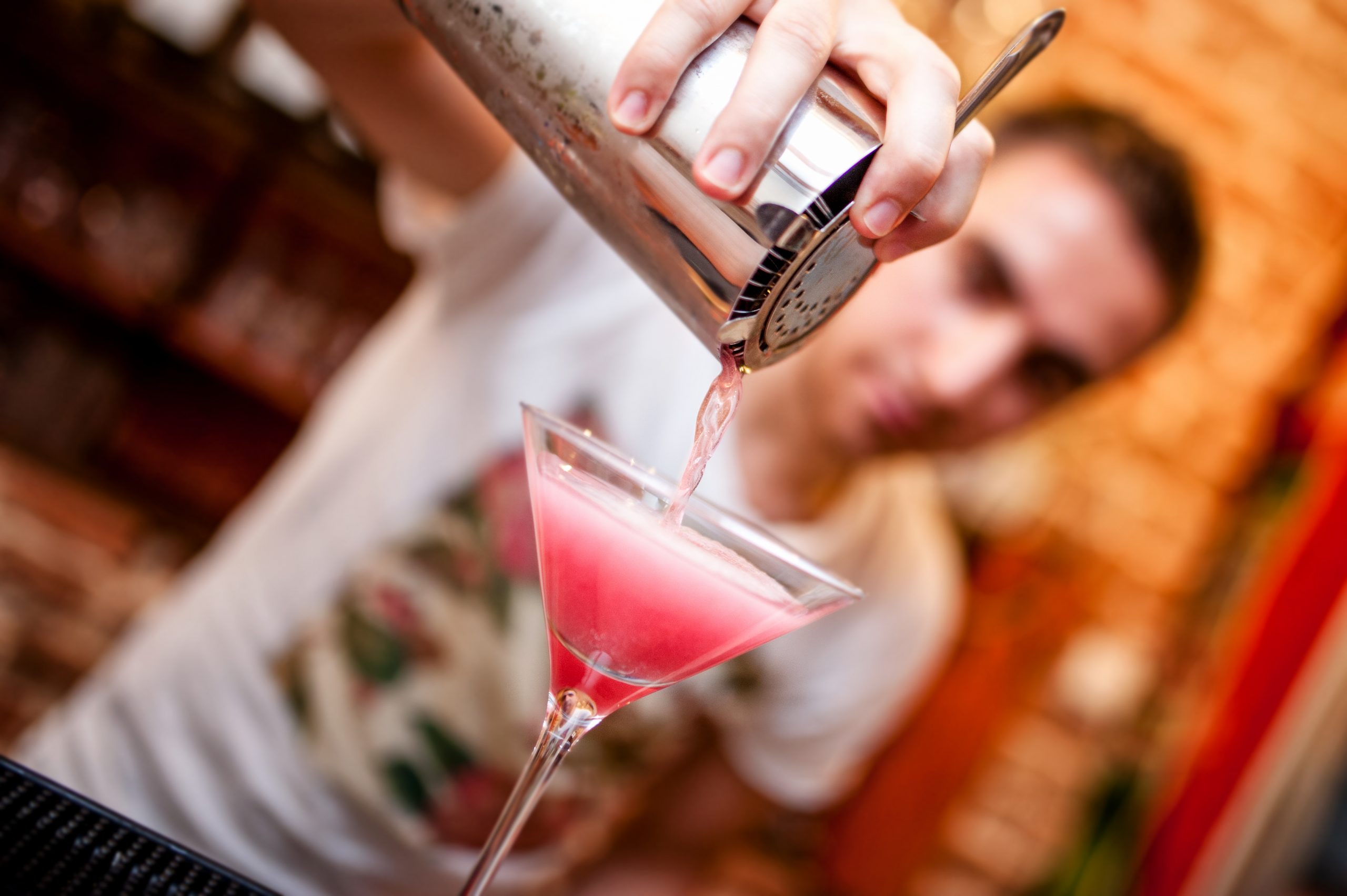


Your role is diverse and fast-paced. You’re constantly talking to customers, crafting cocktails, cutting garnishes, pouring draft beer, handling financial transactions, working late hours, organizing products, and keeping your space clean. There’s a lot going on. In order to to be successful in your role, and to make sure you never miss a step, learn how to master these seven essential bartending skills and become the most valuable asset behind your bar.
Remembering Cocktails
As a bartender, you don’t necessarily need encyclopedic drink knowledge. However, you should remember how to make common cocktails and the drinks featured on your bar’s cocktail list. If you constantly have to ask customers for clarification or look up their requests, you risk wasting time and looking unprofessional.
One of the best ways to improve your memory is to frequently practice making cocktails with the correct tools, glassware, and ingredients. You can also study cocktail books and your bar’s cocktail menu, use flashcards, and create word associations (here’s one: a Kamikaze can be given the association “Very Tragic Landing” to represent its ingredients—vodka, triple sec, and lime).
Recognizing Regulars
It’s also important to remember regular customers. According to the National Restaurant Association’s Operator Survey, regulars make up an average of 75% of sales at family dining restaurants, 70% of sales at casual dining restaurants, and 60% of sales at fine dining restaurants. To create and maintain regular customers, it’s essential to know their names and what they usually like to drink.
An easy tip for remembering customers’ names is to say their name three times—once when they order, again when you ask how their drink is, and a third time when they’re getting ready to leave. You can also associate them with one of your friends or family members who has the same name.
Memorizing Orders
If a customer orders a Whiskey Sour and you hand them a Washington Apple, you’ll likely have to comp their drink and make them a new one. If a group of people rattle off a list of drinks, you should be able to accurately recall and place each person’s order. As a bartender, it’s vital to remember customers’ orders if you want to provide top notch service and use your time efficiently.
To aid in memorization, it’s helpful to repeat each order back to the customer. Not only will this help you remember what they want, it will also confirm you heard the correct drink order.
Throughout your entire interaction with a customer, you’re expected to remain calm, polite, amiable, and collected, even if you’re frustrated, overwhelmed, stressed, exhausted, or dealing with personal problems. It matters how you carry yourself, what facial expressions you make, and what energy you’re giving off.
No doubt, keeping a friendly tone at all hours on the job can be difficult. When you’re constantly showing only those emotions that are appropriate for the job, it can often lead to emotional conflict and burnout. However, with the proper training and time spent on the job, bartenders can further develop this skill. To maintain a friendly vibe, Franky Marshall, a career bartender who got her start at the Monkey Bar and Clover Club, suggests bartenders take breaks, care for themselves, and maintain outside interests.
Different customers require different types of service. If a group of businessmen sit down at the bar during their lunch break, it’s important you get their food in, pay attention to their needs, and get them out quickly. Your service style should also cater to both the group of women casually sipping margaritas and chatting on a Thursday night and the crowd of college bros looking to drink Bud Lites and watch the game.
As a bartender looking to provide excellent service, it’s important to vary your bartending style depending on who sits down in front of you. Learning how to read people takes practice, but after a while behind the bar, you’ll start to pick up on common trends and typical customers.
It’s great if you can craft a high quality cocktail. But, can you make the same cocktail 50 times a night for six shifts a week? Unlike your varying styles of service, your drinks should always be consistent. It’s important that you correctly portion the right amount of ingredients, with no variation in taste, volume, or appearance between drinks.
Not only can inconsistency lead to hit-or-miss cocktails and lower customer satisfaction, it can negatively affect profits. Say there’s a ¼ ounce variance causing you to lose about a dollar a drink. If you sell seven drinks an hour for ten hours a day, you can lose $25,200 a year!
Try BevSpot’s Free Drink Pricing Calculator.
Bartending is about the full customer experience, which means cleanliness is crucial. If your bar is sticky and smells of stale beer, it’s bad for business. Patrons will naturally assume if the front of the house is unsanitary, the back of the house is, too. If that’s not enough incentive, remember that you need to pass regular health inspections to stay in business (our free Health Inspection Checklist can make this easier).
Whenever there’s a break in the action, you should organize your area, wipe down the bar, and clean your bar tools. In order to learn the many ways to properly maintain your workspace, you should attend training, establish a routine, and dig into some helpful reading.
If your bar uses the free pouring method, it’s important to master this skill. If your pour is off, you could either be over-pouring and costing your bar hundreds of dollars, or you could be under pouring and short handing customers. To free pour, you need to establish and practice either a three count or four count pour per ounce.
Although this might seem like a straightforward task, don’t expect to get it right the first time. Free pouring takes a great deal of practice and concentration. To perfect this skill, practice free pouring over and over into a long row of shot glasses or a measuring glass. Even when you think you have this skill mastered, it’s important to frequently test yourself to make sure your count remains accurate.
Cash handling is extremely important, especially during busy nights. In order to move quickly and properly ring-in every sale, you need to remember drink prices and be quick with counting and calculations. To master your bar’s drink prices, ask to take home a drink list so you can properly memorize the price of each item. If you’re looking to improve the accuracy and speed of your count, you can take out a stack of 100 singles from the bank and practice rifling through them while keeping an exact count.
Cash handling also requires proper communication. If a customer hands you a $20 bill, look back at the guest and say “out of twenty” to confirm this is the amount they handed you. It’s also important to count the customer’s change out loud and in front of him to avoid any discrepancies.
Bartending requires a great deal of skill. You’ve got cocktails to craft, glassware to clean, change to count, and a variety of different customers to handle. Whether you’re just starting out or you’re a bartending vet, you should constantly work to improve your bar technique to impress your manager, bring in tips, and keep customers coming back for more.
Looking for more resources to improve your bartending skills? Subscribe to our blog to receive helpful tips and bartending best practices.
Schedule 15mins to chat with a product specialist
Start a FREE Trial Today! BevSpot offers full product education and account setup for all customers! No card Information needed!
